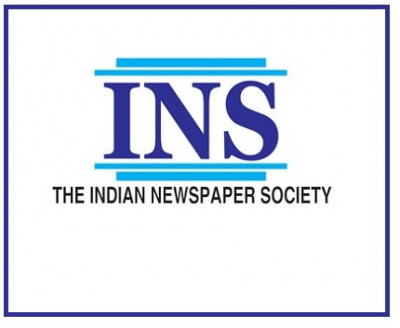INS asks member publications not to publish PSU ads at DAVP rates
The Indian Newspaper Society (INS) has asked its member publications not to publish any PSU advertisements at DAVP rates.
In an advisory issued by the Bureau of Outreach and Communication (DAVP), the Bureau stated that various PSUs and Autonomous Bodies have complained that some newspapers have been refusing to publish the ads of PSUs, Autonomous Bodies and Societies of Government of India at BOC rates.
BOC said that this violated Clause 3 of the Print Media Advertisement Policy 2016 and hence would attract penal action, including suspension of the newspaper from the BOC panel with immediate effect.
According to Clause 3, PSUs, Autonomous Bodies and Societies of Government of India may issue all advertisements directly at DAVP rates to empanelled newspapers.
In a letter to Satyendra Prakash, Director General, Bureau of Outreach & Communication, INS President Shailesh Gupta, wrote “INS sees no justification in PSUs and autonomous bodies engaged in commercial activities getting the benefits of DAVP rates, which are structured for social service and public education campaigns.” He also highlighted the newspaper industry’s deep concern about the impact of the BOC directive on its economic viability.
He reiterated, “We have stated time and again that if DAVP wishes to get into commercial advertising for various commercial ventures, it should be on commercial rates of the publications, in public interest. The publishing industry agreed to give very competitive rates to share the government’s burden in spreading its messages of social and cultural reforms.”
He added that while some publications might, under pressure, accept the PSU ads through agencies on DAVP rates, but it was always under protest. He stressed that the application of highly subsidised DAVP rates caused a serious threat to the viability of the industry and added that the PSUs should be free to advertise in a manner which fulfilled their objectives and missions.
“Needless to point out that DAVP release order is only an offer and the newspapers always have an option of accepting/ refusing Release Orders,” Gupta pointed out.
Meanwhile, INS noted that despite its directives not to publish ads at DAVP rates, some member publications were taking such advertisements at negotiated commercial rates. On enquiry it was found that the negotiated commercial rates were, in fact, at par or around DAVP rates.
The newspaper body further said that this has emboldened the Government to “put greater pressure on us, at a time when we are reeling under the effects of the lockdown which has drastically reduced advertisement spend on both the commercial as well as government side”.
It also noted that unlike television channels, which by and large remain united, “newspapers rarely come together to fight a common cause. Therefore, unless we unite, it is a battle lost even before it begins”.
INS sought the support of all its member publications to comply with INS directives, and not to publish PSU ads at DAVP rates. It also warned that failure to adhere to this request would weaken the industry, which is already looking at a bleak future.




Share
Facebook
YouTube
Tweet
Twitter
LinkedIn